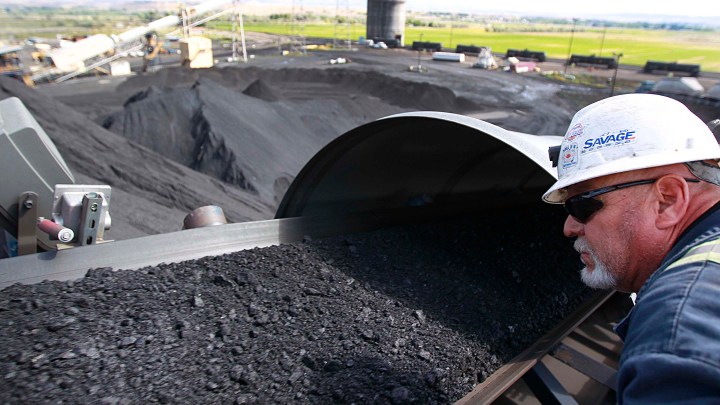
It’s economics, not policy, that’s hurting the coal industry
It’s economics, not policy, that’s hurting the coal industry

The U.S. coal industry isn’t likely to prosper under the Biden administration, but it wasn’t exactly gangbusters under the previous one either, despite all those promises.
“There’s a real gap between rhetoric and reality in the coal industry,” said Clark Williams-Derry, an energy analyst at the Institute for Energy Economics and Financial Analysis. “The rhetoric was that the administration was going to help the coal industry. The reality was that by pursuing what you might call an all-of-the-above energy strategy, in particular one focused on oil and gas, that actually hurt the coal industry.”
In the last few years, the industry’s decline continued, with power generation from coal dropping significantly.
Williams-Derry said many utilities switched from producing electricity with coal to doing it with natural gas because, thanks to fracking, gas has become dirt cheap and readily available.
“Coal had built its reputation as the cheap way to generate power,” he said. “And over the course of the past, let’s say eight to 12 years, it has become the most expensive way to generate power.”
On top of natural gas, the price of wind and solar power continues to drop.
“So that dynamic has made it so that the price now — it becomes a no-brainer where you actually save money if you build renewables,” said Alex Wang, who teaches environmental law at UCLA.
Terrible news for coal because, according to the Energy Information Administration, power generation accounts for more than 92% of U.S. coal demand.
But Betsy Monseu, CEO of the American Coal Council, warns of skyrocketing energy prices, like what happened last summer in California during a heat wave, if the Biden administration tosses coal by the wayside.
“It’s important to fuel diversity, and fuel diversity is important to competitive energy markets,” she said.
While the coal industry isn’t counting on favorable policy from the Biden administration, it’s just hoping to at least remain part of the conversation.
President Joe Biden has said that coal workers would not be forgotten, that his administration would help the industry transition from the mines to new jobs, whether those jobs are in a completely different industry or cleaning up the hundreds of abandoned coal mines across the country. But Williams-Derry said coal’s fundamental problems are technological, rather than political.
“The reality is that the marketplace is attacking coal,” he said. “Coal is essentially a 19th-century technology competing in a 21st-century world that’s very different.”
There’s a lot happening in the world. Through it all, Marketplace is here for you.
You rely on Marketplace to break down the world’s events and tell you how it affects you in a fact-based, approachable way. We rely on your financial support to keep making that possible.
Your donation today powers the independent journalism that you rely on. For just $5/month, you can help sustain Marketplace so we can keep reporting on the things that matter to you.

















